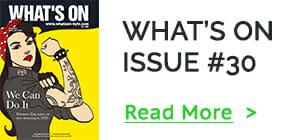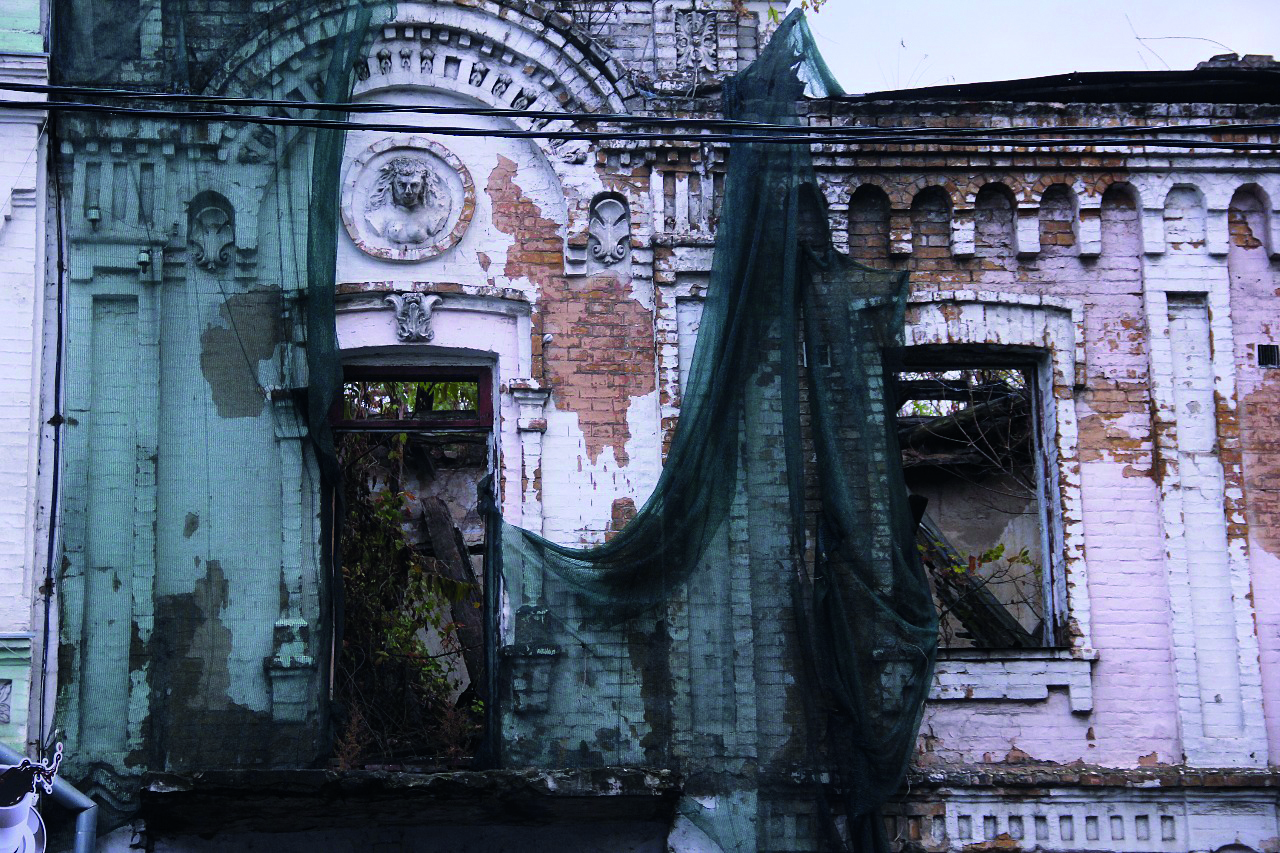Kyiv Gets Sustainable

Kyiv-based companies, non-profit organisations, and volunteers invest a lot of effort to encourage Ukrainians to sort waste and consume more responsibly. Do we really have to be reminded that plastic kills the planet? Unfortunately, yes…
 While we are doing our best to turn Kyiv into a genuinely European city, there are some areas where we need to pull up our socks. Let’s talk responsible consumption.
While we are doing our best to turn Kyiv into a genuinely European city, there are some areas where we need to pull up our socks. Let’s talk responsible consumption.
In European countries, practices like waste sorting have become a daily routine and there isn’t even room for discussion on this topic. Unfortunately, we can’t say the same about Kyiv, and indifference is not the only reason.
As it turns out, people often don’t know about alternatives that can easily replace plastic bags and toiletries. Going forward, it’s hard to get your garbage sorted if you don’t have special sorting bins on your doorstep. However, underestimation of our impact on the planet is probably the main reason we keep collecting plastic bags and throwing plastic bottles to the bins with organic waste. But how do we break old habits and cut down on the amount of plastic in our lives?
Conscientious Kyiv citizens are working on projects that will help solve problems regarding waste sorting, recycling, and urban sustainability. After being brought to fruition, their ideas offer eco-friendly solutions for a sustainable lifestyle.
On average, Ukrainians use around 500 plastic bags per year per person
RETHINKing Consumption
Wednesday 26 September was flowing as usual. After hours of writing, I left the office for lunch somewhere downtown. When passing by Zoloti Vorota, I noticed a woman standing on a trash heap and braiding her hair with plastic bags. It was a one-day anti plastic protest initiated by Ukrainian artist Ani Zur. Through her actions, Zur was saying we should stop using plastic bags in everyday life.
 After a while, the braid that started with Zur’s hair reached the ground, but she continued to add more and more bags to it. So instead of my lunch, I got alternative food for thought.
After a while, the braid that started with Zur’s hair reached the ground, but she continued to add more and more bags to it. So instead of my lunch, I got alternative food for thought.
On average, Ukrainians use around 500 plastic bags per year per person! European citizens try to keep this number under 90. Only 1% of all used plastic bags in the world are recycled. The other 99% end up in garbage dumps. As a result, they pollute the soil, and what’s worse, they kill more than 1 million birds every year mistaking plastic bags for food.
Non-profit organisation ReThink aspires to curb the consumption of plastic bags in Ukraine. Recently the ReThink team gathered more than 25 000 signatures under the All-Ukrainian petition #ПакетНеПотрібен (bags not needed). Unfortunately, they haven’t received clear feedback from the government. So their proposed legislation still awaits adoption.
However, ReThink isn’t giving up and has continued launching educational projects like Trash Talks to decrease the number of plastic bags in our homes. The organisation also supports anti-plastic initiatives like the one Zur held.
Sorting Out Right
 If you have to throw away your plastic bags, do it right: put all bags together and bring them to a sorting station. There’s plenty of them around Kyiv. In addition, stations also accept plastic bottles, batteries, tetra pak bags, glass, paper, and other inorganic waste. Before being brought to the station however your garbage should be sorted at home.
If you have to throw away your plastic bags, do it right: put all bags together and bring them to a sorting station. There’s plenty of them around Kyiv. In addition, stations also accept plastic bottles, batteries, tetra pak bags, glass, paper, and other inorganic waste. Before being brought to the station however your garbage should be sorted at home.
To help people handle waste sorting with ease, Kyiv-based IT company MacPaw created a free mobile app Сортуй (Sort out). The app features useful tips on how to sort all types of garbage you might deal with. Batteries? Take them to the “Екологічні ініціативи” (Ecological initiatives) station. Broken glass? Clean before throwing away. Coca-Cola cans? Crush before taking to the station.
The app also features a Kyiv map with different sorting stations marked. So it’s quite easy to find the nearest one and bring in your waste for recycling.
Eco-friendly Alternatives
When ReThink started their #ПакетНеПотрібен campaign, people began to ask if there were any alternatives to replacing plastic bags. The co-founder of ReThink Olena Koltyk says the supply of reusable bags was really limited. This is why Koltyk and her colleagues started exploring foreign experiences and discovered a quality prototype of reusable bags in a European supermarket. ReThink brought the idea to Ukraine and put it into production. After a few pilot versions ReThink launched the brand ReBag that now sells reusable bags all over Ukraine. One “rebag” can replace up to 500 plastic bags.
 It’s quite easy to find more eco-friendly alternatives on Instagram. The Ukrainian online shop @Ozeroua sells zero waste goods like bamboo-made toothbrushes, eco bags also known as avos’ka, and bamboo cups. You personally won’t feel a big difference after changing over, but the planet will.
It’s quite easy to find more eco-friendly alternatives on Instagram. The Ukrainian online shop @Ozeroua sells zero waste goods like bamboo-made toothbrushes, eco bags also known as avos’ka, and bamboo cups. You personally won’t feel a big difference after changing over, but the planet will.
A responsible approach to consumption is picking up steam even in fashion. Although mass-market and synthetical fabrics are living their glory days, sustainable brands are always warmly welcomed and even hyped.
In 2011, Ksenia and Anton Schnaider introduced the Ukrainian brand of sustainable clothes Ksenia Schnaider. The brand reuses vintage clothing to create modern denim bottoms and jackets. For example, to make one pair of jeans, the designers rework and tailor three pairs of old ones. Today, Ksenia Schnaider is the only brand in Eastern Europe that stands for sustainable consumption, and, of course, it isn’t going unnoticed. World-famous singer Dua Lipa and American model Bella Hadid have already added Ksenia Schnaider to their list of favourites labels.
Support #ECOSTRUM by sharing Onuka’s Strum video on Facebook: https://strum.onuka.ua/en
Let’s Be Aware
With her recently released music video Strum, Ukrainian singer Onuka brings up the issue of environmental pollution in a very artistic way. Directed by Alan Badoev the video was shoot in a dump, where Nata Zhyzhchenko and young people wearing cellophane outfits roamed amidst heaps of garbage. The video reminds us that our irresponsible consumption and mismanaged waste sorting will lead to ecological calamity.
After the release, Onuka and the NoWasteUkraine organisation started an environmental initiative #ECOSTRUM. The initiative aspires to encourage local communities to sort waste and support the recycling market in Ukraine. All profits of the video gained by YouTube monetisation will be transferred to waste sorting stations in Ukraine. Which means the more people who watch the video, the more money invested in new waste-sorting facilities.
“I can do the minimum, but I believe in the maximum,” Onuka sings. Small steps are better than none. Let’s remember this when we decide to buy yet another plastic bag and throw it in the bin along with organic waste.
Upgrade your home with eco-friendly stuff at:
• @Rebag, @avoska_ua
Handy eco bags for everyday shopping
Bamboo ear-buds, toothbrushes, and cups
• @RawFlaw
Washable and reusable stylish bags
Follow #plasticfree, #sustainable, and #zerowaste to find more alternatives and initiatives to support sustainable consumption









 Upgrade your home with eco-friendly stuff at:
Upgrade your home with eco-friendly stuff at:

